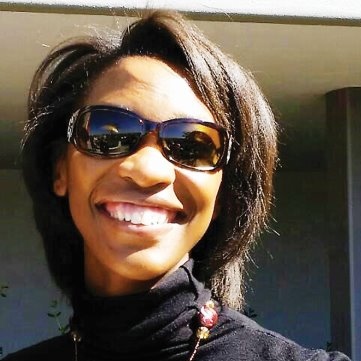
News

Zimbabwean woman strives to strengthen Jewish community
TALI FEINBERG
She greets me with an enthusiastic “Shalom!” on the phone from her home in Harare. A qualified lawyer, businesswoman, women’s economic empowerment expert, public speaker, and government advisor, her enthusiasm and dynamism are infectious.
Indeed, Mhlanga is anything but ordinary. “I grew up in a Christian home, and since I was a teenager, I always felt Jewish. It’s strange because I went to an Anglican private school, and I didn’t know anyone who was Jewish. But I just never fitted in, and as I got older, I started questioning the doctrine,” she says, explaining her unusual path.
“It didn’t really occur to me that this could lead towards a conversion – I didn’t know you could! I sort of stumbled upon it. At the age of 30, I knew I needed to contact a rabbi as I wanted to convert.” That was five years ago, and it hasn’t been easy.
“I’ve been trying to get into the South African conversion programme, but it’s like pulling teeth. I was told to wait until marriage, but it’s a Catch 22, as I know I can’t get married while converting. I’m 36 years old, so it’s a huge sacrifice when it comes to relationships as I’m not sure if I should try to meet someone who is Jewish.”
Thankfully, she has the support of a rabbi in the United States and friends in South Africa, but she says, “No one would do this for fun. It’s expensive, and leaves me in limbo between two communities. Yet, my neshama (Jewish soul) will not let me stop until I complete the process. It’s almost like getting a sense of the birth of Judaism, and what it took Avraham to cut ties and follow what he believed in. It’s a strange feeling of being in transition, when you are not part of one or the other.”
This has not put Mhlanga off her plans to revive the Jewish community in Zimbabwe. She attends shul regularly in Harare, but points out that despite the community being so small, there are still divides along Ashkenazi and Sephardi lines. “What unites us is Shabbat. Because there are so few men, we can’t make a minyan alone. We have to share the men, and we have alternate services at the Ashkenazi and Sephardi shuls.”
She says an elderly man in the community told her that, “When one person dies, we lose 10% of our community.”
Yet she points out: “As Jews, being part of community defines you. Yes, this is an ageing community and it’s small, but the people are still here, and we can’t discard that. We need to convene around something, which is why I am hoping to build a community centre.”
With the support of investors and possibly the Israeli government, she hopes to fill vacant land next to the shul with a centre to host events, workshops, festivals, and simchas (celebrations). It will have a kosher restaurant, and accommodation for Jewish businessmen and travellers, especially anyone coming from Israel. There will be a gift shop with memorabilia from Israel, which she sees as especially important as most local community members can no longer travel to the country because of their age. Mhlanga even hopes to build a mikveh (ritual bath).
She sees the community centre as a way to “keep the lights on”, as it would attract investment, visitors, and support Jews who are still living in the country. In particular, her vision is for it to attract Israeli and South African businessmen to Zimbabwe, where she says there are plenty of opportunities for growth and investment, and expansion. She also believes that Zimbabwe and Israel could strengthen and benefit each other.
Despite the challenges Zimbabwe has faced, Mhlanga remains positive. “Part of the Jewish soul is to be optimistic – it’s what has kept us going as a nation. I don’t think my job here is done. I will remain involved in Zimbabwe because I would like for it to be the country it ought to be.”
If readers would like to support her with the community centre, she asks for investment of material resources, but most importantly, she would like people to visit the Jewish community in Zimbabwe. “We would love support from our sister community in South Africa,” she says.
In terms of her conversion, she would like community members and leaders to make it easier for converts to join the fold, and to have a welcoming attitude. Shortly before this article was published, she was thrilled to confirm: “Rav Hendler who heads up conversions in South Africa is currently kindly assisting me with relocation for my conversion.”
She would also like the South African Jewish community to play a role in resolving the issue of the Lemba Jews, who want to be part of klal yisrael (global Jewry) but are not recognised by the Beth Din in Israel.
Mhlanga sees huge potential in Zimbabwe and its Jewish community, and believes it can still play a role on the world stage. “There is so much potential, and I don’t like to see potential being wasted. Hashem placed us here to be a light – we need to leave a mark wherever we go. Zimbabwe used to be the breadbasket of Africa, so why should it not be so again?”




